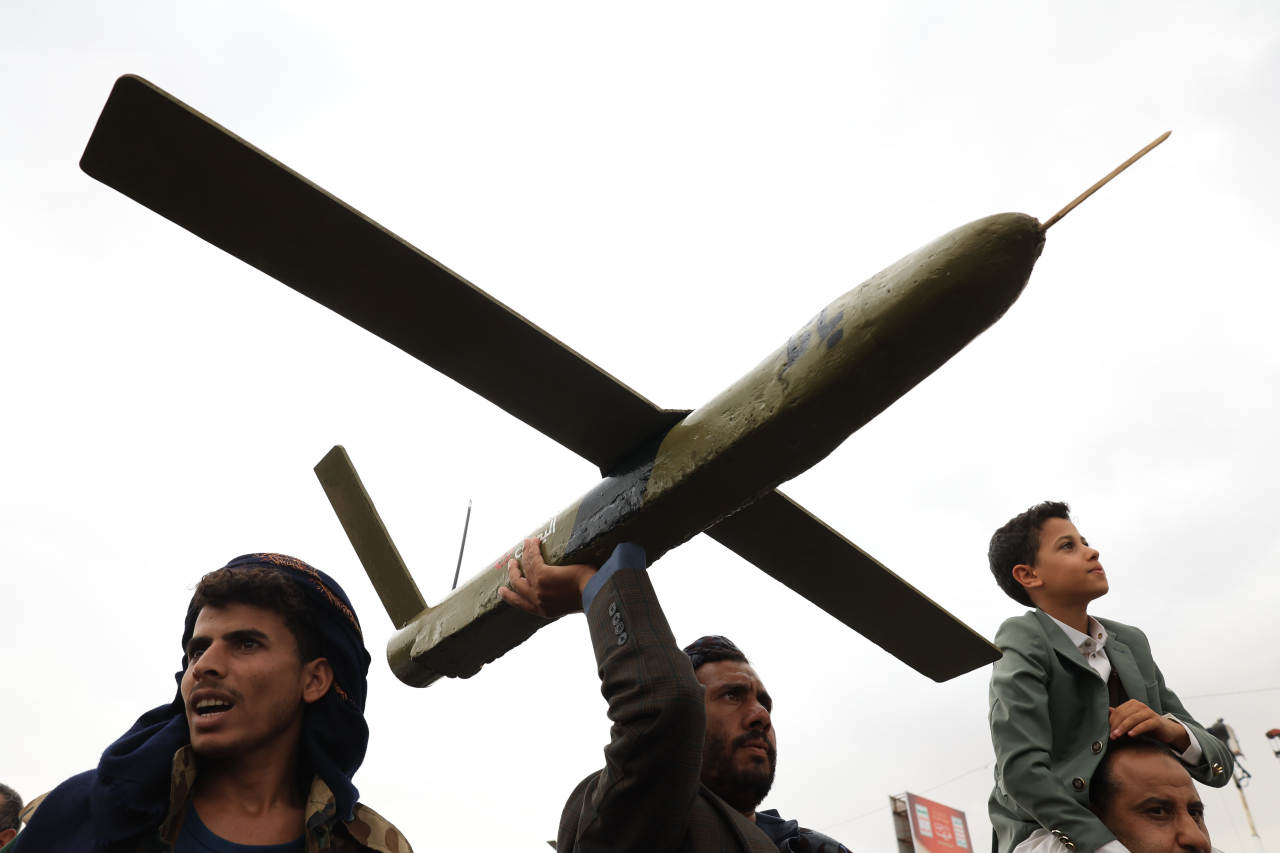Escalation in the Red Sea: A New Chapter in Regional Tensions
The Red Sea has witnessed a significant escalation in violence as a ship was forced to abandon its course after being attacked by Yemen’s Houthi rebels. This incident marks a notable shift, as it is the first of its kind since President Trump announced a truce in May, following assurances from the group that they would cease attacks on Middle Eastern waterways.
The Liberian-flagged, Greek-owned bulk carrier Magic Seas was hit by gunfire and self-propelled grenades near the Houthi-controlled port city of Hodeidah. According to the United Kingdom Maritime Trade Operations, a British Navy task force monitoring shipping in the region, the vessel took on water and had to be abandoned. Other maritime firms have corroborated this information, highlighting the growing risks for commercial vessels navigating these waters.
In response to the ongoing tensions, Israel’s military conducted airstrikes on Yemen following several ballistic-missile attacks by the Houthi rebel group in recent days. An Israeli military official revealed that the operation was planned well in advance, underscoring the strategic nature of the attack.
The Houthis claim their actions are in support of Palestinians in Gaza. They stated that their target, the Magic Seas, belonged to a company that violated the entry ban to the ports of occupied Palestine. This justification reflects the complex dynamics at play in the region, where regional conflicts often intersect with broader geopolitical issues.
Another vessel, the Mike Thomas, operated by Allseas Shipping, is currently anchored in the Israeli port of Ashdod. However, the operator has not responded to requests for comment, leaving many questions unanswered about the situation.
In May, President Trump announced that the U.S. would halt its military campaign against the Houthis in exchange for the militants ceasing their missile and drone attacks on shipping lanes. Despite this, Israel was excluded from the deal, and the Iran-backed group has continued to launch attacks on Israel using ballistic missiles and drones. The attack on the Magic Seas represents a new phase in their operations, as they had previously avoided targeting Red Sea shipping.
Since the start of Israel’s war against Hamas in 2023, the Houthis have fired dozens of ballistic missiles at Israel, complicating efforts to restore air traffic to prewar levels. The group has targeted over 100 commercial and military ships since November 2023, resulting in the sinking of two vessels, the death of at least four seafarers, and the rerouting of numerous ships around southern Africa.
Israel’s recent attack on Monday marked the first strike against Houthi-held parts of Yemen since the 12-day conflict between Iran and Israel ended in late June. Both Israel and the U.S. accuse Iran of funding, arming, and guiding the Houthis. Iranian officials have expressed support for the Houthi cause but deny the allegations of direct involvement.
During the attack, Israel deployed around 20 jet fighters and dropped over 50 munitions, targeting key locations such as the ports of Hodeidah, Ras Isa, and Salif, as well as the Ras Kanatib power plant. These sites are reportedly used for transferring Iranian weapons and supporting the Houthi military. Israel also struck the Galaxy Leader, a commercial vessel taken by the Houthis in November 2023, which had been equipped with a radar system to monitor maritime traffic.
In response to the Israeli strikes, the Houthis launched a series of attacks, including one ballistic missile at Ben Gurion Airport near Tel Aviv, one at Ashdod port, and one at a power station in Ashkelon, along with 11 drones targeting Eilat. The Houthis claimed they repelled the Israeli attack, while local residents described the strikes as the heaviest since Israel targeted oil facilities in Hodeidah last July.
Two of the missiles fired from Yemen penetrated Israel’s airspace, with one intercepted and the other falling in open territory. No casualties were reported from the recent attacks, but the situation remains volatile.
As the region grapples with these developments, the implications for international shipping, regional stability, and global geopolitics continue to unfold. The ongoing conflict underscores the need for diplomatic solutions and increased efforts to ensure the safety of maritime routes in the Red Sea.







